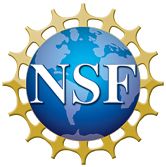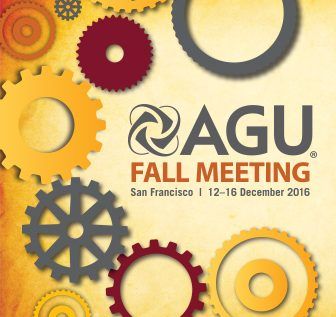Li et al., 2016
Understanding Hydrogeochemical Processes at the Watershed Scale Using RT-Flux-PIHM
Li, L., Bao, C., Shi, Y., Duffy, C., and Brantley, S.L. (2016)
2016 Fall Meeting, American Geophysical Union, San Francisco, CA, 12-16 Dec.
-
Shale Hills, INVESTIGATOR
-
Shale Hills, GRAD STUDENT
-
Shale Hills, INVESTIGATOR
-
Shale Hills, INVESTIGATOR
-
National, Eel, Luquillo, Shale Hills, INVESTIGATOR, COLLABORATOR
Abstract
We developed RT-Flux-PIHM, a code that augments existing simulation capabilities of hydrological processes (PIHM) and land-surface interactions (FLUX) by adding a multi-component reactive transport module (RT) that simulate geochemical processes including aqueous complexation, surface complexation, mineral dissolution and precipitation, and cation exchange. The code was verified against the widely-used reactive transport code CrunchFlow. We demonstrate the use of RT-Flux-PIHM by applying it to understand the hysteresis of concentration and discharge relationship of the non-reactive tracer chloride and the reactive magnesium during a large rainfall event in the Susquehanna Shale Hills Critical Zone Observatory (SSHCZO). The results show the important role of a large rainfall event in flushing out and exporting chemicals out of the watershed. Ion exchange provides buffering capacities and leads to the hysteresis of concentration and discharge relationship of magnesium during the large rainfall event. In addition, we found that subsurface lateral flow contributes to 60% - 90% of the stream discharge, indicating rapid mobilization of “old water” in SSHCZO. In contrast, the “new water” from surface runoff only contributes to approximately 10~40% of the stream discharge. In general, larger contribution from subsurface lateral flow leads to more connected watershed and more chemstatic behavior of non-reactive tracer and geogenic species from chemical weathering, while larger contribution from surface runoff and deeper groundwater typically occur when the watershed is less connected leading to more dilution behavior. RT-Flux-PIHM offers capabilities for virtual experiments at the watershed scale to understand key controls of hydrogeochemical processes in a spatially-explicit manner.
Citation
Li, L., Bao, C., Shi, Y., Duffy, C., and Brantley, S.L. (2016): Understanding Hydrogeochemical Processes at the Watershed Scale Using RT-Flux-PIHM. 2016 Fall Meeting, American Geophysical Union, San Francisco, CA, 12-16 Dec..
 This Paper/Book acknowledges NSF CZO grant support.
This Paper/Book acknowledges NSF CZO grant support.
Explore Further






